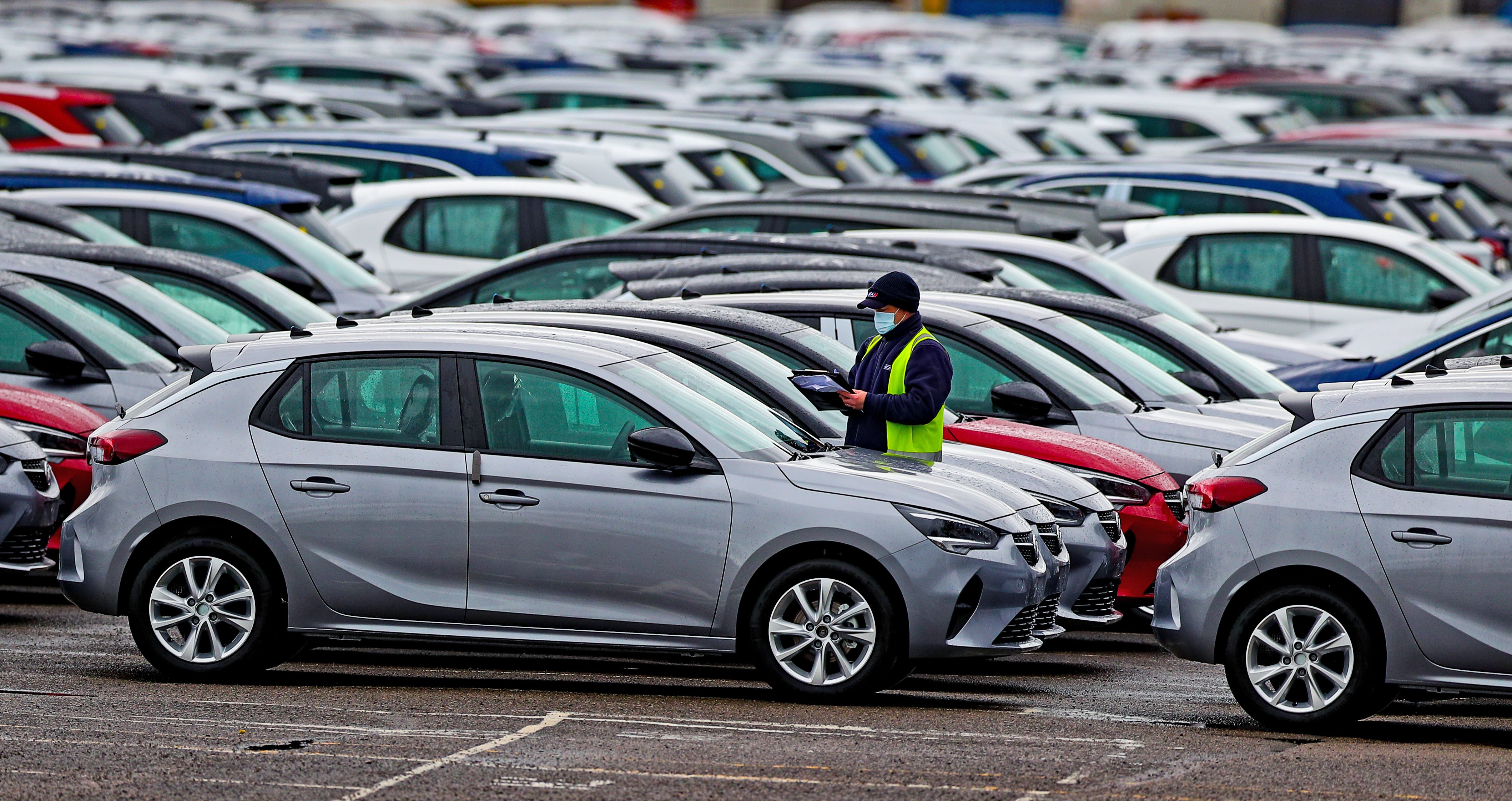UK car manufacturing falls to lowest since Suez crisis in 1956
Car factories face a drop in production of a staggering 37.6 per cent

Your support helps us to tell the story
From reproductive rights to climate change to Big Tech, The Independent is on the ground when the story is developing. Whether it's investigating the financials of Elon Musk's pro-Trump PAC or producing our latest documentary, 'The A Word', which shines a light on the American women fighting for reproductive rights, we know how important it is to parse out the facts from the messaging.
At such a critical moment in US history, we need reporters on the ground. Your donation allows us to keep sending journalists to speak to both sides of the story.
The Independent is trusted by Americans across the entire political spectrum. And unlike many other quality news outlets, we choose not to lock Americans out of our reporting and analysis with paywalls. We believe quality journalism should be available to everyone, paid for by those who can afford it.
Your support makes all the difference.UK car production has slumped suddenly in the worst performance for July since 1956, official figures show.
Car factories produced just 53, 438 motors last month, a cliff-edge drop of 37.6 per cent on the same month a year earlier.
A global shortage of microchips and staff absences due to the ‘pindemic’ are driving the crash in production figures, according to industry experts.
Overall production figures for 2021 are up by just 18.3 per cent (or 552,361 cars) year on year - compared to pre-pandemic levels in 2019, figures are down by 28.7 per cent.
Weak performance, and the impact of the pandemic, has caused The Society of Motor Manufacturers and Traders (SMMT) to cuts its production forecast for 2021 from 1.05 million to around 950,000, The Times reported.
The industry body, who collates the figures, said that the sudden decline must prompt the Government to step in and help.
“These figures lay bare the extremely tough conditions UK car manufacturers continue to face,” Mike Hawes, chief executive of the SMMT, said. “While the impact of the pingdemic will lessen as self-isolation rules change, the worldwide shortage of semiconductors shows little sign of abating.”
The figures were also the final month to record outputs at Honda’s factory in Swindon. The production line official came to a close last month, with the plant moving back to Japan.
Honda was the UK’s fifth biggest car producer, pre-pandemic, churning out around 110,000 Civic hatchbacks a year.
A shortage of chip supplies has been the biggest strain on producers and it was reported this week that Jaguar Land Rover was suffering long delays on vehicles because of the shortfall.
According to a briefing note sent to leasing firms seen by Liverpool Business News, Jaguar Land Rover said it will still be taking quotations and orders but warned that retailers should be told that deliveries would take significantly longer due to ‘extended lead times’.
Volkswagen has also warned recently that it was expecting a further squeeze on vehicle production in the coming months. Toyota said it was running low on supplies and would be reducing its car outputs by 40 per cent from September. This came despite the Japanese company stockpiling chips for years.
The average new car needs 1,500 microchips.
Mike Hawes, of the SMMT, said: “Government can help by continuing the Covid measures in place and boosting our competitiveness, with a reduction in energy levies and business rates for a sector strategically important in delivering net zero.”
In better news, Mr Hawes added: “More than a quarter of all cars made in July were hybrid or all-electric, meaning the UK turned out 126,757 of these important products this year.”
Join our commenting forum
Join thought-provoking conversations, follow other Independent readers and see their replies
Comments